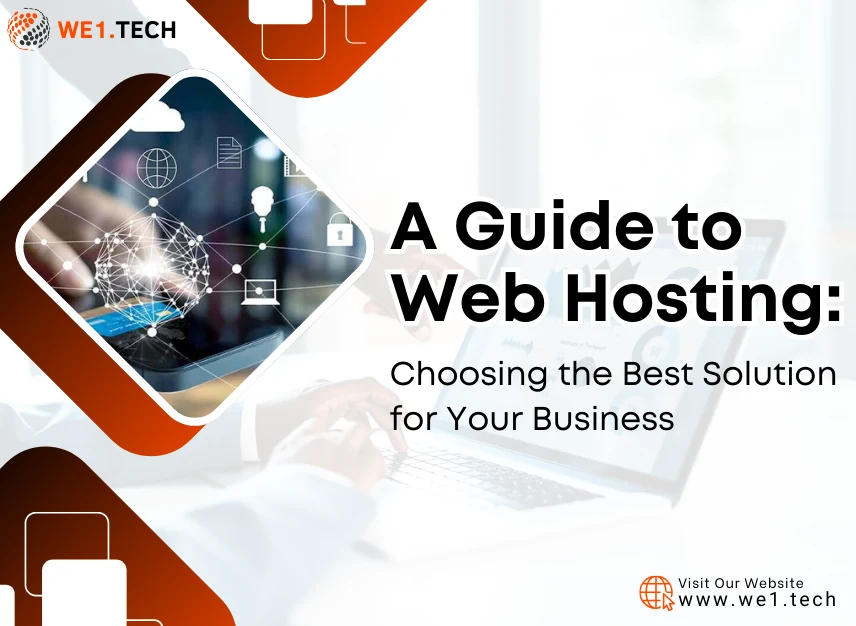A Guide to Web Hosting: Choosing the Best Solution for Your Business

Whether you are launching a new website or upgrading an existing one, your hosting plan plays a major role. It impacts the site's accessibility, performance, and security. A poorly chosen plan can lead to slow loading speeds, frequent downtime, or even security vulnerabilities. This, ultimately, affects your business's reputation and success. So, opting for the right web hosting solution is one of the most important decisions for any company.
With so many hosting options available, the choices can certainly feel overwhelming. Each has its own unique benefits, features, and use cases.
In this guide, we will help you understand what web hosting is and explore the available types. We will also provide tips to find the best solution for your business needs. So, let's get started!
What Is Web Hosting and How It Works?
Web hosting is a solution that makes your websites or apps accessible on the internet. Think of it as renting space on a server that stores your website's data and delivers them to users when they visit your site. Hosting providers manage these servers. They ensure your site stays online 24/7, handle traffic, and secure your data.
When you purchase a hosting plan, you receive resources such as:
-
Storage
-
Bandwidth
-
Support Services
Whether you are running a blog page or an e-commerce store, web hosting ensures your site is functional at all times.
Types of Web Hosting Solutions
When it comes to web hosting, there is no universal solution. Every website has different requirements. Thus, the type of hosting you choose can undoubtedly impact your site's performance and success.
Below is a breakdown of four main types of hosting solutions to help you find the best fit for your business.
-
Shared Hosting -
It is perhaps the most popular option for beginners and small businesses. In this setup, several websites share the same server and its resources. They share the storage space and processing speed. This option is perfect for websites with moderate traffic and basic needs like blogs or small e-commerce stores.
Features
Benefits
-
Cost-effective for personal projects and startups
-
Ideal for low-traffic sites
-
Simple to manage with minimal technical skills required
However, shared hosting may not handle high traffic well, as resources are divided among users.
-
Dedicated Hosting -
Here, you get an entire server solely for your website. You have complete control over the server and can configure or customize as per your needs. This option is ideal for large businesses or websites with heavy traffic and technical requirements.
Features
-
Full control over server settings and configurations
-
Higher levels of security
-
Superior performance, reliability, and scalability
Benefits
While dedicated hosting is powerful, it is also the most expensive option. This makes it ideal for large projects or organizations.
-
Virtual Private Server (VPS) Hosting -
In this setup, a physical server is divided into various virtual servers. Each server acts as an independent environment. So, in VPS, you share a server, but your portion is isolated and private.
Features
Benefits
-
Cost-effective compared for mid-sized businesses and websites
-
ore reliable performance than shared hosting
-
Suitable for growing businesses
VPS is a versatile option for websites that are done with shared hosting but aren't ready for a dedicated server yet.
-
Cloud Hosting -
Cloud hosting is one of the most modern and scalable hosting solutions. It uses multiple interconnected servers to host your apps or sites. So, if one server goes down, another instantly takes over. This helps to ensure uninterrupted service. Large e-commerce stores and enterprise-level applications often choose cloud hosting.
Features
-
Excellent uptime
-
Highly flexible, reliable, and scalable
-
Pay-as-you-go pricing model
Benefits
Cloud hosting is clearly gaining popularity for its ability to adapt to changing needs. This makes it a modern choice for dynamic businesses.